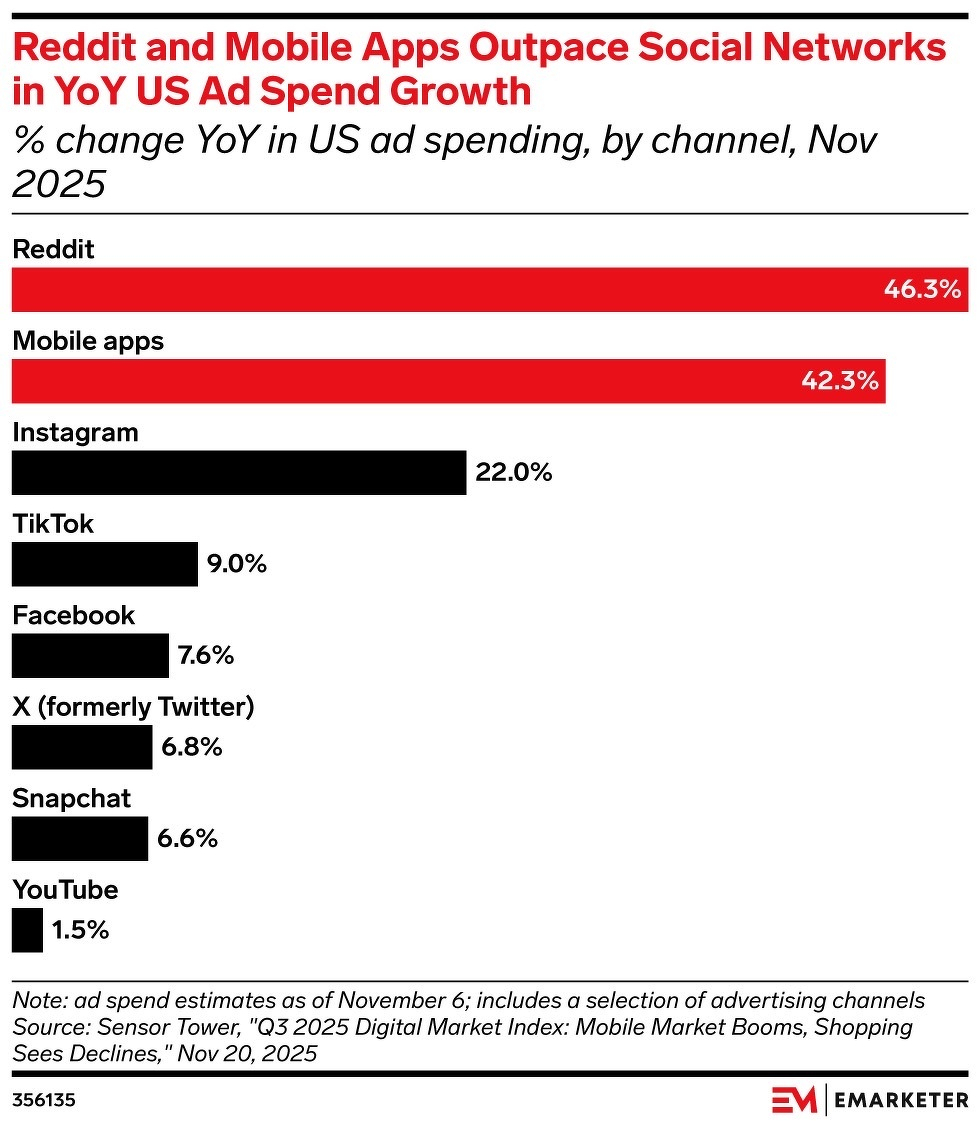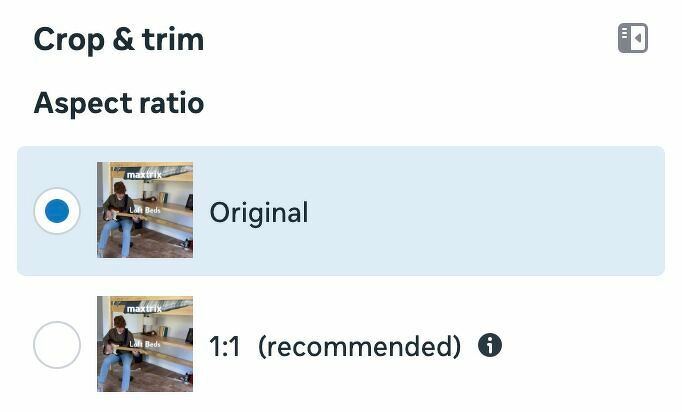Meta
- Influencer marketing / Brand Partnerships
- Click to Message campaigns
Welcome to dead week planning week!
Reddit and mobile apps (Applovin') are hot like Hansel with advertisers right now. There’s probably plenty of runway left for ad growth (unlike Meta), but the question remains:
Should you zig or should you zag?
via EMARKETER

Also on Bluesky
After listening to Meta’s Alex Schultz on the Marketing Over Coffee podcast, I have two things I want to try figuring out for clients in 2026:
“Figuring out” looks different for each client. Time to experiment!
Also on Bluesky
Is Meta listening?
In early October I posted
Meta needs to ditch the horizontal ad placements and replace that asset bucket with one for 4:5 in the ad builder
Earlier today, when editing the “Right Column, Search Results” placement it now shows 1:1 as the recommended size (in the one account I’m in that I did this in, so YMMV).
The main Feeds placement bucket still says 1:1 recommended, but it looks like it’s trying to default to a 4:5 size in the preview pane. So change may be afoot there as well.

Also on Bluesky
Creative became the new targeting. Now, creative velocity is becoming the performance bottleneck.
It started with TikTok, where it was said creative had a 72 hour lifespan. Now Meta wants more, more, more
According to Foxwell Digital, best practice is now:
Every five to seven days, refresh your ad set with 5–10 new creatives that look and feel different.
The other implication of that post is partner or die. If you’re not running partnership ads, what’s even the point? (is inferred)
I say: follow your metrics (outside of Meta). Make your ads work for you, don’t work for your ads.
Also on Bluesky
Chat 4 Ads
From Meta…
We will start personalizing content and ad recommendations on our platforms based on people’s interactions with our generative AI features
Whether it’s a voice chat or a text exchange with our AI features, this update will help us improve the recommendations we provide for people across our platforms so they’re more likely to see content they’re actually interested in
Also on Bluesky

